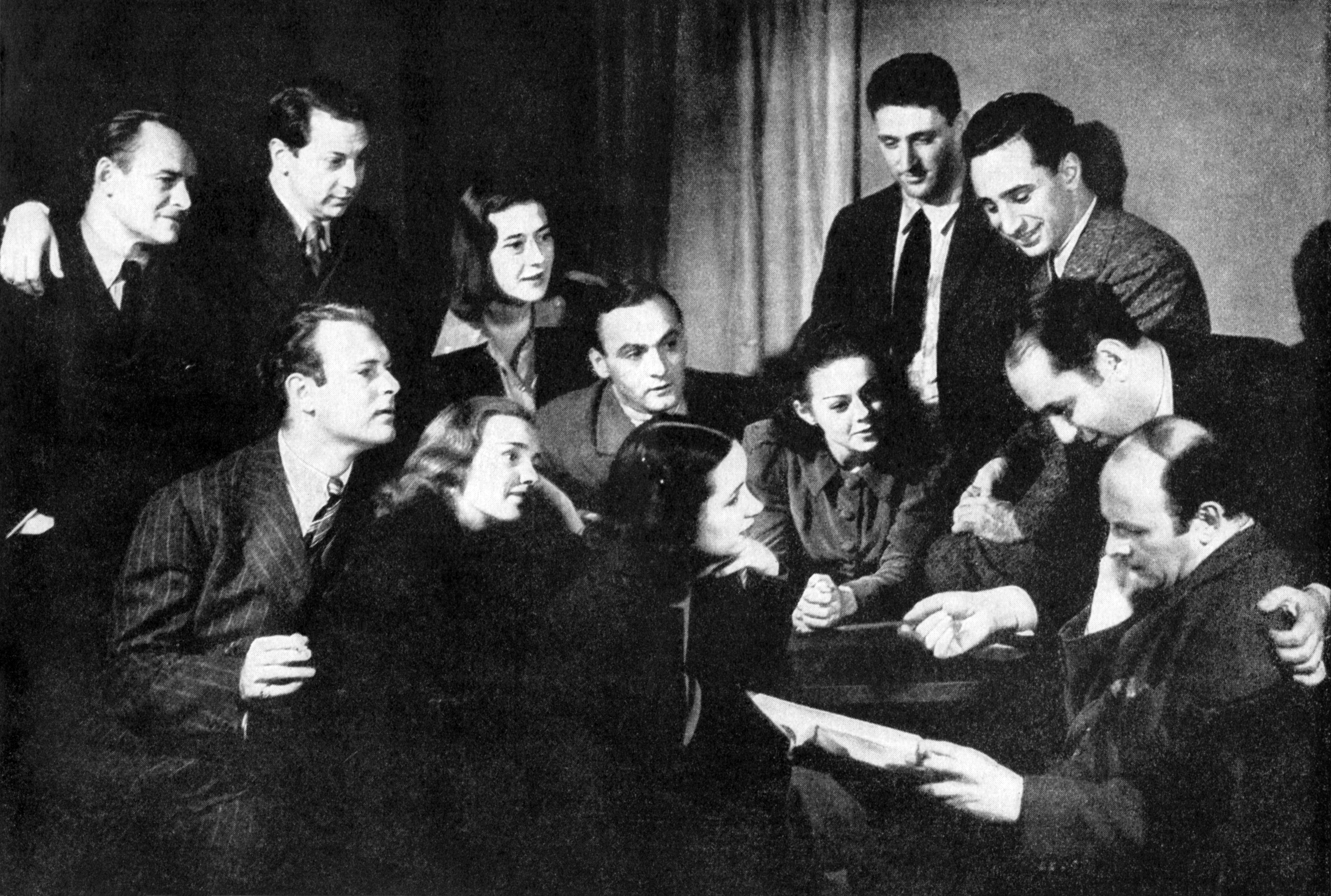|
Ghulam (film)
''Ghulam'' () is a 1998 Indian Hindi-language action film, directed by Vikram Bhatt, and starring Aamir Khan and Rani Mukherji in lead roles. It is a remake of Vishesh Films' first production '' Kabzaa'' (1988), starring Sanjay Dutt, in turn inspired by Elia Kazan's ''On the Waterfront'' (1954). ''Ghulam'' released on 19 June 1998, and was a commercial success at the box office. At the 44th Filmfare Awards, ''Ghulam'' received 6 nominations, including Best Film, Best Director (Bhatt) and Best Actor (Khan), and won Best Scene of the Year. The film was remade in Tamil in 2000 as ''Sudhandhiram''. Plot Siddharth "Siddhu" Marathe is a Mumbai tapori, a boxing champion. His brother, Jai Marathe, is the manager and right-hand man for Raunak "Ronnie" Singh, a former boxing champion who ostensibly runs a travel agency, but in reality rules the local community by terrorising people and stealing money from innocent merchants. Other than his boxing practice, Siddhu leads a relati ... [...More Info...] [...Related Items...] OR: [Wikipedia] [Google] [Baidu] |
Vikram Bhatt
Vikram Bhatt (born 27 January 1969) is an Indian director, producer, screenwriter and actor. He is best known for directing the Raaz (film series), ''Raaz'' film series, an Indian horror series produced by Mahesh Bhatt and Mukesh Bhatt and for directing ''Ghulam (film), Ghulam'' (1999) starring Aamir Khan and Rani Mukherji, which was also produced by Mukesh Bhatt. For both of these he was nominated for the Filmfare Award for Best Director. Formerly, he was the creative head of ASA Productions and Enterprises until 2014, when he resigned from the company. Early life Bhatt is the grandson of Vijay Bhatt from (Gujarat, Palitana), one of the pioneers of the Indian film industry, and the son of cinematographer Pravin Bhatt. Career At the age of 14, in 1982, Bhatt started his career with director Mukul Anand in Anand's first film, ''Kanoon Kya Karega''. Bhatt also assisted Mukul Anand as the chief assistant on the sets of ''Agneepath (1990 film), Agneepath''. This film turned out to ... [...More Info...] [...Related Items...] OR: [Wikipedia] [Google] [Baidu] |
Elia Kazan
Elia Kazan (; born Elias Kazantzoglou ( el, Ηλίας Καζαντζόγλου); September 7, 1909 – September 28, 2003) was an American film and theatre director, producer, screenwriter and actor, described by ''The New York Times'' as "one of the most honored and influential directors in Broadway and Hollywood history". Born in Constantinople (now Istanbul), to Cappadocian Greek parents, his family came to the United States in 1913. After attending Williams College and then the Yale School of Drama, he acted professionally for eight years, later joining the Group Theatre in 1932, and co-founded the Actors Studio in 1947. With Robert Lewis and Cheryl Crawford, his actors' studio introduced "Method Acting" under the direction of Lee Strasberg. Kazan acted in a few films, including ''City for Conquest'' (1940). His films were concerned with personal or social issues of special concern to him. Kazan writes, "I don't move unless I have some empathy with the basic theme." His ... [...More Info...] [...Related Items...] OR: [Wikipedia] [Google] [Baidu] |
Bandh
Bandh (Devanagari: बंद) (literally: shutting down) is a form of protest used by political activists in South Asian countries such as India India, officially the Republic of India (Hindi: ), is a country in South Asia. It is the seventh-largest country by area, the second-most populous country, and the most populous democracy in the world. Bounded by the Indian Ocean on the so ... and Nepal. It is similar to a general strike. During a bandh, a political party or a community declare a general strike. For example, a ''Bharat (term), Bharat bandh'' is a call for a bandh across India, and a bandh can also be called for an individual state or municipality. The community or political party declaring a bandh expects the general public to stay at home and not report for work. Shopkeepers are expected to keep their shops closed, and public transport operators are expected to stay off the road. There have been instances when large cities have been brought to a standstill. A ... [...More Info...] [...Related Items...] OR: [Wikipedia] [Google] [Baidu] |
Indian Independence Movement
The Indian independence movement was a series of historic events with the ultimate aim of ending British Raj, British rule in India. It lasted from 1857 to 1947. The first nationalistic revolutionary movement for Indian independence emerged from Bengal. It later took root in the newly formed Indian National Congress with prominent moderate leaders seeking the right to appear for Indian Civil Service (British India), Indian Civil Service examinations in British India, as well as more economic rights for natives. The first half of the 20th century saw a more radical approach towards self-rule by the Lal Bal Pal, Lal Bal Pal triumvirate, Aurobindo Ghosh and V. O. Chidambaram Pillai. The final stages of the independence struggle from the 1920s was characterized by Congress' adoption of Mahatma Gandhi's policy of non-violence and Salt March, civil disobedience. Intellectuals such as Rabindranath Tagore, Subramania Bharati, and Bankim Chandra Chattopadhyay spread patriotic awarenes ... [...More Info...] [...Related Items...] OR: [Wikipedia] [Google] [Baidu] |
Cease And Desist
A cease and desist letter is a document sent to an individual or business to stop alleged illegal activity. The phrase "cease and desist" is a legal doublet, made up of two near-synonyms. The letter may warn that, if the recipient does not discontinue specified conduct, or take certain actions, by deadlines set in the letter, that party, i.e. the letter's recipient, may be sued. When issued by a public authority, a cease and desist letter, being "a warning of impending judicial enforcement", is most appropriately called a "cease and desist order". Usage for intellectual property Although cease and desist letters are not exclusively used in the area of intellectual property, particularly in regards to copyright infringement, such letters "are frequently utilized in disputes concerning intellectual property and represent an important feature of the intellectual property law landscape". The holder of an intellectual property right such as a copyrighted work, a trademark, or a pat ... [...More Info...] [...Related Items...] OR: [Wikipedia] [Google] [Baidu] |
Cost–benefit Analysis
Cost–benefit analysis (CBA), sometimes also called benefit–cost analysis, is a systematic approach to estimating the strengths and weaknesses of alternatives. It is used to determine options which provide the best approach to achieving benefits while preserving savings in, for example, transactions, activities, and functional business requirements. A CBA may be used to compare completed or potential courses of action, and to estimate or evaluate the value against the cost of a decision, project, or policy. It is commonly used to evaluate business or policy decisions (particularly public policy), commercial transactions, and project investments. For example, the U.S. Securities and Exchange Commission must conduct cost-benefit analyses before instituting regulations or deregulations. CBA has two main applications: # To determine if an investment (or decision) is sound, ascertaining if – and by how much – its benefits outweigh its costs. # To provide a basis for comparing inve ... [...More Info...] [...Related Items...] OR: [Wikipedia] [Google] [Baidu] |
Blaming The Victim
Victim blaming occurs when the victim of a crime or any wrongful act is held entirely or partially at fault for the harm that befell them. There is historical and current prejudice against the victims of domestic violence and sex crimes, such as the greater tendency to blame victims of rape than victims of robbery if victims and perpetrators knew each other prior to the commission of the crime. Coining of the phrase Psychologist William Ryan coined the phrase "blaming the victim" in his 1971 book of that title. In the book, Ryan described victim blaming as an ideology used to justify racism and social injustice against black people in the United States. Ryan wrote the book to refute Daniel Patrick Moynihan's 1965 work ''The Negro Family: The Case for National Action'' (usually simply referred to as the Moynihan Report). Moynihan had concluded that three centuries of oppression of black people, and in particular with what he calls the uniquely cruel structure of American slavery ... [...More Info...] [...Related Items...] OR: [Wikipedia] [Google] [Baidu] |
Aati Kya Khandala
"Aati Kya Khandala" is a Hindi song sung by Indian actor Aamir Khan and playback singer Alka Yagnik and composed by Jatin–Lalit. It was a part of the soundtrack of the 1998 Hindi film ''Ghulam''. The lyrics were written by Nitin Raikwar. About the song "Aati Kya Khandala" is part of the movie Ghulam. In the movie, Alisha ( Rani Mukerji) is upset after a fight with her father. Her friend and lover Sidhu (Aamir Khan) tries to cheer her up by singing the song "Aati Kya Khandala". Literally, the song is a request to come to Khandala, a scenic holiday location near Mumbai, the city where the film is not situated. Aamir Khan is the playback singer for himself and Alka Yagnik is the playback singer for Rani Mukherji. Reception and impact The song became an instant hit and is one of Bollywood's most popular songs ever, to the extent that Rani Mukherjee became known as ''Khandala Girl''. The song was also the first in a spate of songs sung by actors in Bollywood movies, and ... [...More Info...] [...Related Items...] OR: [Wikipedia] [Google] [Baidu] |
Game Of Dares
A dare game is a game in which people dare each other to perform actions that they would not normally do. Gameplay The game is played by two or more players. A player asks another to do something that one would not normally do or even think of doing themselves. The request may come in the form of "I dare you to..." or "Can you ...?". In order to stay in the game, one must perform the task they are dared to do. If a player refuses to do the challenge or fails to complete it, they lose and are out of the game. Often, losers are given nicknames like "loser" or "chicken". Risks The game may involve dangerous or unhealthy tasks. Yet, according to social worker Jennifer Moore-Mallinos, "very few children will back on the challenge no matter what the potential risks may be. Attempting the task is for them,the only option." She adds that "although many of these dares begin with harmless requests, over time heyhave the tendency to develop into more serious demands." Popularity and d ... [...More Info...] [...Related Items...] OR: [Wikipedia] [Google] [Baidu] |
Sudhandhiram
''Sudhandhiram'' () is a 2000 Tamil-language crime action film directed by Raj Kapoor and produced by K. R. Gangadharan. The film stars Arjun and Rambha while Raghuvaran, Raadhika and Sharat Saxena play supporting roles. It is a remake of the Hindi film ''Ghulam'' (1998) which itself is based on the 1954 American film ''On the Waterfront''. Plot Vishwa is a ''goonda'' and an aspiring boxing champion. He does the typical ''goonda'' jobs (like scaring a batsman of the local cricket club to make sure he becomes out) for Sopraj, the local ''dada''. He is usually bailed out by a lawyer Padmini, who believes that there is still good in him and he just needs to be given another chance. Sopraj is aiming to build a colony in the area after vacating the people already living there. Vishwa's brother Raghu, is an accountant on Sopraj's payroll. Love blossoms between Vishwa and Divya, the girlfriend of the head of a local gang. When a social worker Vikram intrudes in the affairs of Sopr ... [...More Info...] [...Related Items...] OR: [Wikipedia] [Google] [Baidu] |
Filmfare Award For Best Scene Of The Year ...
The Filmfare Best Scene of the Year Award is decided by Sony Executives who nominate five scenes of the most popular movies of the year and telecast them on their channel two weeks prior to the event. The winner is revealed only at the ceremony. Here is the list of the award winners. See also * Filmfare Award * Bollywood * Cinema of India {{DEFAULTSORT:Filmfare Best Scene Of The Year Award Scene Scene (from Greek σκηνή ''skēnḗ'') may refer to: Arts, entertainment, and media Music * Scene (subculture), a youth subculture from the early 2000s characterized by a distinct music and style. Groups and performers * The Scene who reco ... [...More Info...] [...Related Items...] OR: [Wikipedia] [Google] [Baidu] |
Filmfare Award For Best Actor
The Filmfare Award for Best Actor is an award, begun in 1954, presented annually at the Filmfare Awards to an actor via a jury. This is given by '' Filmfare'' as part of its annual Filmfare Awards for Hindi (Bollywood) films. The award was first given in 1954. The most recent winner of the award is Ranveer Singh. As of 2020, Dilip Kumar and Shah Rukh Khan lead the list, with 8 wins each. Superlatives *Dilip Kumar also holds the record for most consecutive wins, having won the award for three years in a row from 1956 to 1958. Six other actors have won the award in consecutive years; in chronological order, they are Rajesh Khanna (1971–72), Sanjeev Kumar (1976–77), Amitabh Bachchan (1978–79), Naseeruddin Shah (1981–82), Shah Rukh Khan (1998–99), and Ranbir Kapoor (2012–13). *Actors who have won both Best Actor and Best Supporting Actor awards include Ashok Kumar, Sanjeev Kumar, Amitabh Bachchan, Shammi Kapoor, Anil Kapoor, Anupam Kher, Sunny Deol, Jackie Shro ... [...More Info...] [...Related Items...] OR: [Wikipedia] [Google] [Baidu] |






